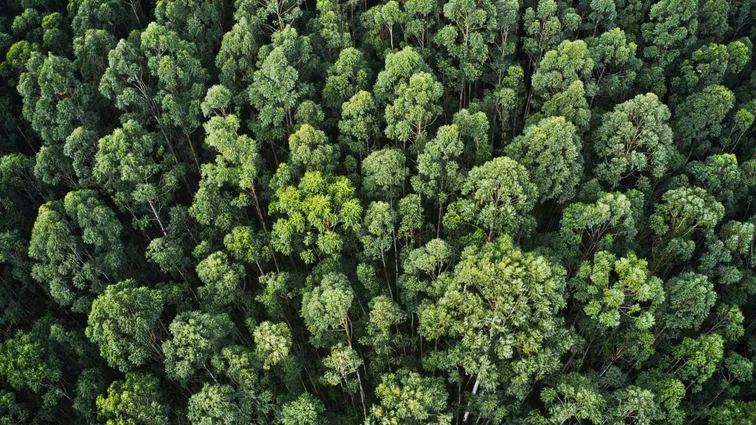The EU Deforestation Regulation is another crucial piece in the European Union's green policy puzzle, aiming to stop contributions to global deforestation and forest degradation. The Regulation’s goals include protecting global forests, reducing the EU's greenhouse gas emissions, and curbing biodiversity loss. The Regulation imposes stringent obligations on enterprises that export or import commodities such as cattle, cocoa, coffee, oil palm, rubber, soya, and wood to or from the EU. It is the first regulation directly targeting global deforestation.
The core rule of the Regulation is the prohibition of placing or making available on the EU market, or exporting from the EU, cattle, cocoa, coffee, oil palm, rubber, soya, and wood, and products made using these commodities if their production drives deforestation, have not been produced in compliance with the relevant legislation of the country of production, and no due diligence statement has been issued in relation to them.
The Regulation has the potential to impact all sellers and buyers of the specified commodities or products made using them. It also has cross-border implications, affecting entrepreneurs from non-EU countries who operate within the EU.
Adoption process
The Regulation was adopted on 29 June 2023, with broad consensus among all EU institutions and strong public support, as shown by opinion polls. The Czech Republic also played a role in its adoption during its EU Council presidency. Shortly after adoption, the Regulation faced strong criticism from affected companies and some Member States. The main criticism centred on inadequate preparation and explanation of the new mechanisms introduced by the Regulation.
The European Commission did not timely present the methodology or risk categorization for countries, according to which EU countries should prepare their systems. Consequently, the Regulation's effectiveness was postponed by one year, also supported by Czech MEPs in the European Parliament. The obligations laid down in this Regulation will now apply from 30 December 2025, for large and medium-sized enterprises, and from 30 June 2026, for small-sized enterprises.
Scope of the Regulation
The Regulation applies to seven “relevant commodities” defined in Article 2, para (1): cattle, cocoa, coffee, oil palm, rubber, soya, and wood. It also covers most products that have been made using these commodities. The complete list of products covered by the Regulation is provided in Annex I of the Regulation. Examples include meat of cattle, chocolate, glycerol, pneumatic tyres, and wood charcoal. Regarding cattle, even feed made from relevant commodities used in raising must not be associated with deforestation in any way. Products made using relevant commodities but not listed in Annex I are not covered by the Regulation. Similarly, recycled products made using relevant commodities, which would otherwise be disposed of as waste (e.g., coffee grounds), are not covered. The list of commodities may, and likely will, change.
The Regulation applies to all "operators," which in this context mean both natural and legal persons who, in the course of their commercial activities, place relevant commodities or products on the EU market or export them from the EU market. Additionally, all other entities involved in the sale and distribution of these products within the supply chain must comply with the Regulation's requirements (referred to as “traders” in the Regulation). Conversely, the Regulation does not apply to end consumers, as mere purchasing does not constitute placing or making the product available on the market. However, it may affect the price or availability of the demanded products.
The Regulation categorizes operators into small, medium-sized, and other, i.e. large, enterprises. Small and medium-sized enterprises may benefit from certain due diligence reporting reliefs.
The obligations set out in the Regulation also extend to online marketplaces, regardless of whether making a product available on the market occurs through traditional or online channels. This means that sellers on online marketplaces must ensure that the products they offer comply with due diligence and are deforestation-free.
New obligations introduced by the Regulation
A fundamental condition is that products must not originate from land developed by deforestation, i.e., the conversion of forest to land for agricultural use. Since the EU fully aligns with the conclusions of the legally non-binding New York Declaration on Forests, which it now enforces through the Regulation, the decisive date for assessing the land used for production was set at 31 December 2020.
The origin of products falling under the scope of the Regulation must not be associated with deforestation in any way and their production must comply with the relevant legislation of the country of origin, particularly that related to land use, environmental protection, forest-related rules, third-party rights, labour rights, human rights, etc. This ensures that the production of these products does not contribute to further deforestation or forest degradation, which is a broader concept than deforestation.
Operators and traders will also have to issue the due diligence statements confirming that their products did not lead to deforestation or forest degradation. These statements must include information prescribed by the Regulation, such as the geolocation coordinates of the plots of land from which their commodities originate. This measure serves as a tool to verify the veracity of the statements. Operators must also declare that they have exercised due diligence and that no or only negligible risk of deforestation associated with their products was identified. To reduce bureaucratic and administrative burdens, these statements will be submitted electronically via an online information system established and launched by the Commission at the end of last year. In this system, operators will be able to specify the exact location of the origin of their products, provide additional details related to these products, such as codes and descriptions, and manage the submitted statements.
Due diligence and a statement of it must be submitted before placing products on the EU internal market, which occurs through customs clearance (for imports) or transfer of ownership (for domestic production). Statements via the electronic information system can also be submitted in advance (e.g., quarterly) and subsequently explain any discrepancies between the products actually placed on the market and those listed in the statement. However, the quantity and parameters of the product specified in the statement must never be exceeded. Upon submitting the due diligence statement, a reference number will be generated, which the operator must indicate in the customs declaration.
Operators and traders are required to implement procedures to reduce the risk of deforestation and adopt mitigating measures to minimize these risks if necessary. For small and medium-sized enterprises, these obligations are less stringent. Unlike other businesses, they are not required to issue an annual public report on their due diligence system, detailing measures taken to minimize deforestation risks, nor to appoint a compliance officer.
Penalties
Significant penalties are imposed for infringement of the Deforestation Regulation, including maximum fines of at least 4% of the company's annual Union-wide turnover, confiscation of products, and temporary exclusion from public procurement processes and access to public funding.
Both natural and legal persons can report infringements of this Regulation through the so-called substantiated concerns. Upon submission, competent authorities must address these concerns appropriately and inform the notifier within 30 days of the measures taken, providing the reasons for them.
How we can specifically assist you in relation to the Regulation
In our practice, we offer the following services related to the Regulation:
- Analysis of obligations applicable to your company under the Regulation;
- Preparation of an overview of contractual relationships with suppliers;
- Employee training;
- Assistance with completing due diligence statements;
- Representation before monitoring authorities;
- All related legal services.
For more information, please feel free to contact us.
Useful links:
Text of REGULATION (EU) 2023/1115 OF THE EUROPEAN PARLIAMENT AND OF THE COUNCIL of 31 May 2023 on the making available on the Union market and the export from the Union of certain commodities and products associated with deforestation and forest degradation and repealing Regulation (EU) No 995/2010 (here)
Commission Guidance Document on EUDR
Data on the EU OBSERVATORY ON DEFORESTATION AND FOREST DEGRADATION website showing forest cover as of 31 December 2020.
EUDR Guide by the Czech Forest Management Institute
Information system for completing and registering due diligence statements: https://eudr.webcloud.ec.europa.eu/tracesnt/








